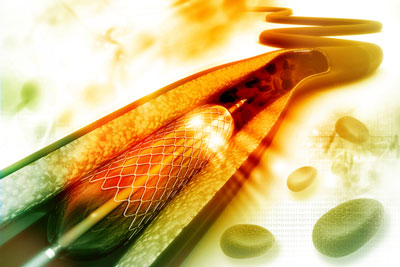Abbott announces positive results of its naturally dissolving stent from ABSORB Japan study
Posted: 1 September 2015 |
Abbott has announced positive one-year clinical results from ABSORB Japan, a multi-center, randomised trial comparing the safety and effectiveness of Abbott’s fully dissolving AbsorbTM heart stent to XIENCE®…


Abbott has announced positive one-year clinical results from ABSORB Japan, a multi-center, randomised trial comparing the safety and effectiveness of Abbott’s fully dissolving AbsorbTM heart stent to XIENCE®, Abbott’s market-leading, permanent drug eluting stent.


The trial was conducted in 38 sites in Japan and enrolled 400 people with coronary artery disease, the most common form of heart disease. The results will be featured at a late-breaking session today at ESC Congress 2015, an annual event of the European Society of Cardiology that brings together cardiologists from around the world, with the goal of reducing the burden of cardiovascular disease. In addition, the data was published simultaneously in the European Heart Journal.
Absorb is a first-of-its-kind device that functions like a permanent, metallic stent by opening a blocked artery in the heart, restoring blood flow and providing relief from symptoms of CAD. However, unlike a metallic stent, which permanently restricts vessel movement and limits future treatment options, Absorb is made of a naturally dissolvable material that leaves behind a restored vessel free of a permanent implant, with the potential to flex, pulse and dilate in response to various demands on the heart, based on people’s lifestyle and activities.
“The results of the ABSORB Japan study continue to affirm that Absorb shows strong performance near-term and preserves the vessel for potential future procedures,” said Takeshi Kimura, M.D., Ph.D., director, Department of Cardiovascular Medicine, Kyoto University Hospital, Japan, and principal investigator of the ABSORB Japan study. “Fully dissolving heart stents are the next evolution in percutaneous coronary intervention and are designed to leave nothing behind in the body, thus restoring the vessel more naturally over time, which cannot be achieved with a permanent drug eluting stent.”
Last year, Abbott announced positive one-year clinical results from ABSORB II, the world’s first prospective, randomized, controlled trial comparing the safety and effectiveness of Absorb to XIENCE. At one year, overall clinical outcomes for Absorb were comparable to XIENCE. The trial, conducted primarily in Europe, included 501 people with CAD.
Key findings of ABSORB Japan include:
- A primary endpoint of target lesion failure (TLF) of 4.2 percent for Absorb and 3.8 percent for XIENCE (non-inferiority p<0.0001, superiority p=0.85). TLF is a composite of heart disease-related deaths, heart attacks attributed to the treated vessel, and repeat procedures within the treated lesion caused by ischemia (lack of oxygen in the treated vessel), powered for non-inferiority at one year.
- The major secondary endpoint of angiographic in-segment late lumen loss (LLL), with 95 percent angiographic follow-up, at 0.13+0.30 mm for Absorb and 0.12+0.32 mm for XIENCE (non-inferiority p<0.0001, superiority p=0.74). LLL measures the difference in millimeters between the diameter of the treated vessel after a procedure compared to a follow-up angiogram, in this case at 13 months.
- The rates of stent thrombosis (ST) for Absorb and XIENCE were both 1.5 percent for definite and probable ST (p=1.0).
- Rate of repeat procedures was infrequent for both devices at 2.6 percent with Absorb and 2.3 percent with XIENCE (p=1.0).
“The ABSORB Japan results contribute to the growing body of Absorb data, providing further clinical evidence that the fully dissolving stent initially functions like a permanent, metallic stent by opening up blocked heart vessels and restoring blood flow. However, unlike a metallic drug eluting stent, Absorb naturally dissolves over time, leaving nothing behind,” said Charles Simonton, M.D., FACC, FSCAI, chief medical officer and divisional vice president, Medical Affairs, vascular, Abbott. “The fact that Absorb completely dissolves means that the restored vessel has the potential to move as it needs to, based on lifestyle activities.”
Absorb is available in more than 90 countries worldwide. Abbott completed its submission for regulatory approval of Absorb in the United States and Japan. ABSORB Japan is designed to support regulatory approval of Absorb in Japan. At the 2015 Transcatheter Cardiovascular Therapeutics (TCT) conference in October, Abbott will present one-year pivotal data from ABSORB III and ABSORB China at late-breaking sessions, as well as two-year data from ABSORB II.
Currently, Absorb is an investigational device in the United States and Japan, and it is not approved for commercial use in these countries.



